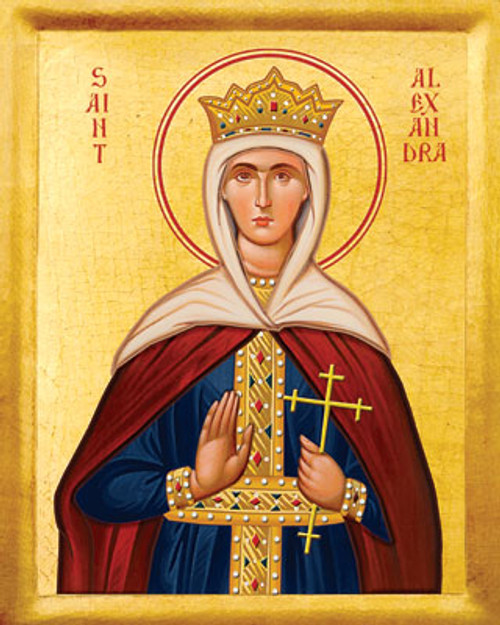Commemorated on June 14
Macrina was born at Caesarea, Cappadocia. Her parents were Basil the Elder and Emmelia, and her grandmother was Macrina the Elder. Among her nine siblings were two of the three Cappadocian Fathers, her younger brothers Basil the Great and Gregory of Nyssa, as well as Peter of Sebaste and the famous Christian jurist Naucratius. Her father arranged for her to marry, but her fiancé died before the wedding. After having been betrothed, Macrina did not believe it was appropriate to marry another man, but saw Christ as her eternal bridegroom.
Macrina had a profound influence upon her brothers and her mother with her adherence to an ascetic ideal. In Gregory of Nyssas Life of Macrina he remembers her as a child who was devoted to study of the Scripture, especially the Wisdom of Solomon, and those parts of it which have an ethical bearing, "such parts as you would think were incomprehensible to young children were the subject of the girl's studies".
Macrina, who resolved never to leave her mother, moved with her to one of their rural estates and lived within a community of virgins who came from both an aristocratic and a non-aristocratic origin. All members were free and slaves got the same rights and obligations as their masters. The death of the brother Naucratius shocked her mother and gave to Macrina a priority role in the domestic life.
In 379, Macrina died at her family's estate in Pontus, which with the help of her younger brother Peter she had turned into a convent of virgins. Gregory of Nyssa composed a Dialogue on the Soul and Resurrection (peri psyches kai anastaseos), entitled ta Makrinia (P.G. XLVI, 12 sq.), to commemorate Macrina, in which Gregory purports to describe the conversation he had with Macrina at her death, in a literary form modelled on Plato's Phaedo. Even when dying, Macrina continued to live a life of sanctity, as she refused a bed, and instead chose to lie on the ground. Her feast day is 19 July.
Macrina is significant in that she set the standard for being a holy Early Christian woman. She contributed to her brother's writings and his belief that virginity reflected the "radiant purity of God".







